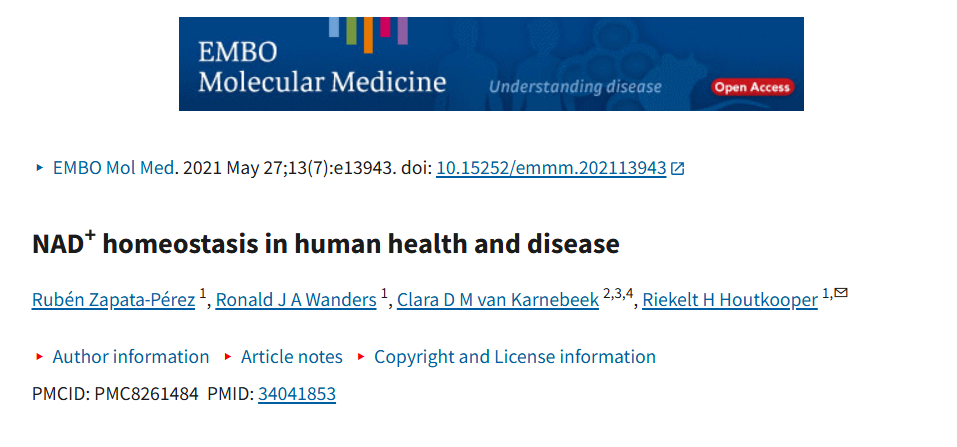Unlocking the Fountain of Youth: How NAD+ Powers Health and Longevity
Discover the remarkable molecule that's revolutionizing health and wellness. NAD+ is more than just a cellular powerhouse—it's a key player in energy production, DNA repair, and anti-aging processes. Learn how maintaining NAD+ levels can support longevity, boost vitality, and combat the effects of aging and disease, backed by cutting-edge scientific research.
NAD+
1/15/20251 min read


The study titled "NAD+ homeostasis in human health and disease" provides a comprehensive overview of the role of nicotinamide adenine dinucleotide (NAD+) in various physiological processes and its implications in health and disease.
Key findings from the study include:
Central Role of NAD+: NAD+ is essential for redox reactions, serving as a cofactor in metabolic pathways, and acts as a substrate for enzymes involved in DNA repair and gene expression.
NAD+ Depletion and Disease: Reduced NAD+ levels are linked to several inherited and acquired diseases, including metabolic disorders, neurodegenerative diseases, and cardiovascular conditions.
Primary NAD+ Deficiencies: These arise from genetic mutations affecting NAD+ biosynthesis pathways, leading to impaired production and associated health issues.
Secondary NAD+ Deficiencies: Factors such as aging, poor diet, and environmental stressors can disrupt NAD+ homeostasis, contributing to disease development.
Therapeutic Potential: Restoring NAD+ levels through supplementation with precursors like nicotinamide riboside (NR) or nicotinamide mononucleotide (NMN) has shown promise in preclinical models for mitigating disease symptoms and improving health outcomes.
Clinical Applications: Ongoing research is exploring NAD+ augmentation therapies for conditions like mitochondrial myopathies, neurodegeneration, and metabolic syndromes.
In summary, maintaining NAD+ homeostasis is crucial for health, and disruptions can lead to various diseases. Therapeutic strategies aimed at restoring NAD+ levels hold potential for treating multiple conditions.
Wellness
Holistic health services for anti-aging and recovery.
CONTACT
Vitality
contact@eternalwellness.center
+62 821-1824-9760 (WhatsApp)
© 2022. All rights reserved.
